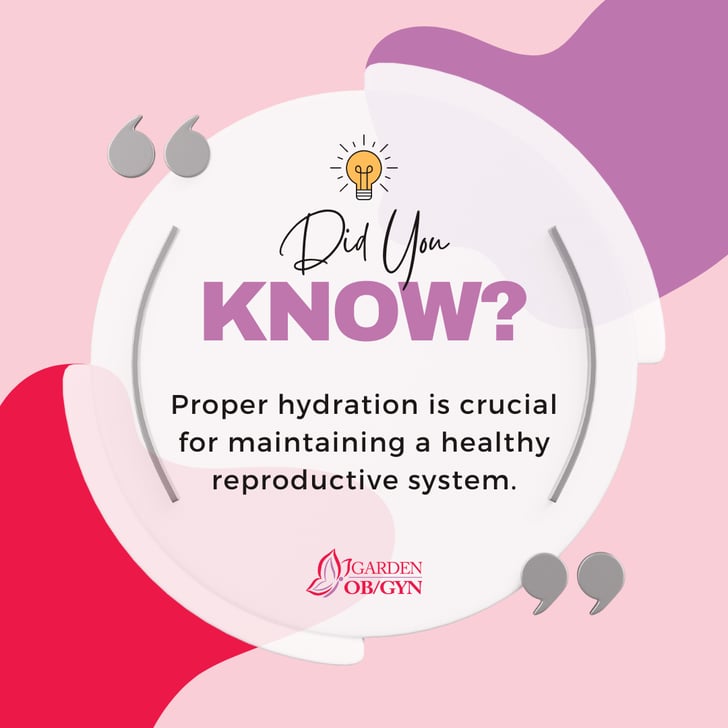Importance of Hydration for Reproductive Health
Unlock the link between hydration and reproductive wellness. Dive into our article to discover how proper hydration plays a pivotal role in nurturing your reproductive health.

Hydration and Reproductive Health: Nurturing Your Body
Proper hydration isn't merely about satisfying your thirst; it's a fundamental pillar of overall well-being, including reproductive health. In this article, we'll explore the vital connection between staying well-hydrated and nurturing a healthy reproductive system.
The Essence of Life: Water
Water is often described as the essence of life, and for a good reason. It constitutes the primary component of every cell, tissue, and organ in our bodies, and our reproductive organs are no exception. To function optimally, these vital structures require adequate hydration.
Hormone Harmony
Hormones are the body's messengers, orchestrating various processes, including those related to reproduction. Proper hydration is crucial for hormone production and balance. Dehydration can disrupt these delicate systems, potentially affecting menstrual cycles and fertility.
Fighting Inflammation
Chronic dehydration can lead to inflammation, a factor associated with various reproductive issues, including conditions like polycystic ovary syndrome (PCOS) and endometriosis. Staying well-hydrated can help reduce the risk of these conditions and promote reproductive health.
Cervical Mucus and Fertility
Maintaining proper hydration contributes to the production of cervical mucus. This mucus plays a pivotal role in fertility by facilitating the journey of sperm through the cervix to meet the egg. Ensuring optimal cervical mucus production can enhance your chances of conception.
Pregnancy and Beyond
During pregnancy, your body's demand for water significantly increases. Staying well-hydrated is not only essential for your own well-being but also for the growth and development of your baby. Adequate hydration can help prevent common pregnancy discomforts like constipation and urinary tract infections.
How Much Water Do You Need?
While there's no one-size-fits-all answer to this question, a general guideline is to aim for 8-10 glasses of water per day, which is roughly equivalent to 2-2.5 liters. Keep in mind that individual hydration needs can vary based on factors such as activity level and climate. Pay attention to your body's signals; if you're thirsty, it's time to drink up.
Hydrating Foods
Remember that hydration isn't solely dependent on water consumption. Fruits and vegetables, such as watermelon, cucumber, and oranges, are excellent sources of hydration. Including these foods in your diet can provide added hydration benefits.
In conclusion, proper hydration is a simple yet powerful way to support your reproductive health. By making a conscious effort to drink enough water and incorporating hydrating foods into your diet, you're taking proactive steps to ensure your reproductive system functions optimally. It's a small change that can make a big difference in your overall well-being. Cheers to a well-hydrated, healthy you!
































